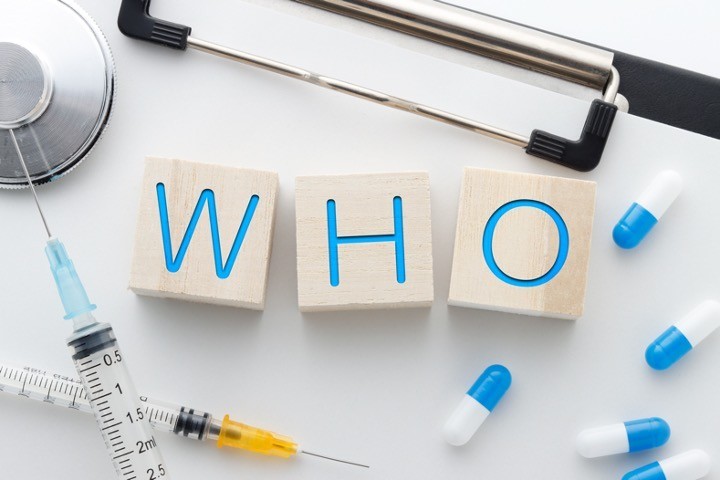
bee32/iStock/Getty Images Plus
U.S. to Negotiate Accord to Transfer Pandemic Management to WHO
The Biden administration is in the active phase of drafting a legally binding pandemic agreement that would empower the UN’s World Health Organization (WHO) to shape national policies concerning pandemic “prevention, preparedness, and response.”
Serious failures by the WHO in handling the Covid pandemic made many Americans question the supranational body’s competence, but U.S. Health and Human Services Secretary Xavier Becerra was not one of them. On September 27, 2022, Becerra joined with WHO Director-General Tedros Adhanom Ghebreyesus to announce the “U.S.-WHO Strategic Dialogue,” which provides for a “historic new financial intermediary fund” and development of a “new pandemic instrument.” That latest included, among other things, the “targeted amendments” to the International Health Regulations (IHR), a treaty the United States ratified back in 2005.
In December 2022, 194 member states of the WHO, including the United States, agreed to develop a “zero draft” of a pandemic accord set to be negotiated and finalized starting on February 27, 2023 at the meeting of the WHO’s Intergovernmental Negotiating Body.
Recognizing “the catastrophic failure of the international community in showing solidarity and equity in response to the coronavirus disease (COVID-19) pandemic,” the WHO members consider it much more productive to transfer responsibility for pandemic management to the globalist experts. In essence, the WHO will have “the central role of WHO as the directing and coordinating authority on international health work” that relates to “pandemic prevention, preparedness, response, and recovery of health systems, and in convening and generating scientific evidence, and, more generally, fostering multilateral cooperation in global health governance.”
As such, the WHO director will have the authority to declare a pandemic. The draft provides a rather vague definition of “pandemic,” which can potentially describe any and all communicable diseases. Once a pandemic is declared, all signatories would submit to the authority of the WHO regarding treatments and pandemic measures.
The definition of “pandemic-causing pathogens” is yet to be agreed upon, but the draft agreement would set up the Pathogen Access and Benefit-Sharing System (PABS), “a specialized international access and benefit-sharing instrument” whose status should be legally recognized by each signatory. The PABS will be responsible for identifying pathogens and assessing vaccines and other pandemic-related products.
The agreement would require each nation to put in place a standardized system of policies and strategies that would involve not just healthcare institutions, but also actors “across the public and private sectors and relevant agencies” to ensure the “resilience of health systems, rooted in universal health coverage.” It is not clear how much private-sector entities such as pharmaceutical companies, whose only obligation is to be profitable, will aid in promoting public health, which arguably was undermined by their products during the Covid pandemic.
Further, the signatories will be required to “commit to increas[ing] science, public health and pandemic literacy in the population.” To that end, the countries will have to conduct “educational and public awareness campaigns,” likely akin to the propaganda campaigns put in place under the Biden administration to promote Covid shots.
Simultaneously, the countries will need to make sure that the populations do not consume “false, misleading, misinformation or disinformation,” which signatories will have to “tackle,” per the draft. In other words, all information that contradicts WHO would have to be censored. Again, that is exactly what happened when Biden colluded with Big Tech companies to suppress information critical of Covid measures such as lockdowns, masking, vaccines, treatments, etc.
Factors that could contribute to mistrust toward public health agencies and “hinder adherence” to policies such as vaccinations and the use of certain therapeutics and other measures recommended by the WHO should be “researched” and addressed.
The agreement would expand the regulatory powers of the members regarding “pandemic-related products,” which should be receiving “timely approval” and be available for use quickly. And, in the event of a pandemic, the members could even choose to accelerate the process of approving and licensing such products for “emergencies,” much as they did with Covid shots and therapeutics.
The draft specifically addresses the use of “substandard and falsified pandemic-related products,” which should be regulated against. Judging from the WHO and Biden administration’s approaches adopted during the Covid pandemic, these positions would likely result in the wide distribution of poorly tested new vaccines, while preventing doctors from prescribing alternative generic treatments and medicines.
A group of 17 U.S. Senators led by Ron Johnson (R-Wis.) is pushing back against the outrageous plan with a legislative proposal aimed at reinforcing Senate power to sign off on such “accords.” On February 15, they introduced the “No WHO Pandemic Preparedness Treaty Without Senate Approval Act,” which states that the pandemic accord must be deemed an international treaty, requiring the approval of two-thirds of the Senate.

Veronika Kyrylenko
Veronika Kyrylenko, Ph.D. is a senior editor of The New American. Twitter: @niki_kyrylenko GETTR: @vkyrylenko LinkedIn: https://www.linkedin.com/in/nkyrylenko/
Published with permission of thenewamerican.com